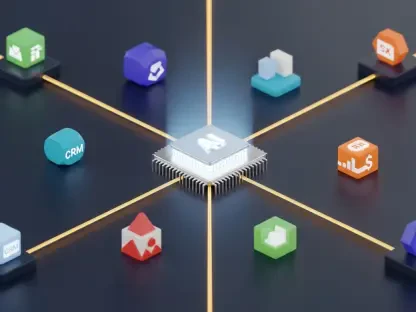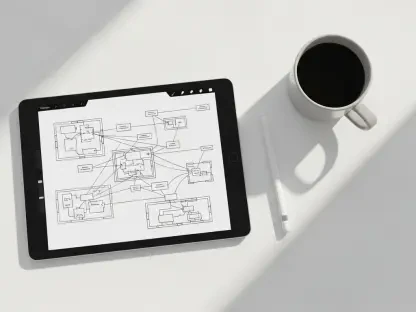Quantum computing is rapidly evolving, and frameworks like Cirq are at the forefront of this revolution. Developed by Google, Cirq is an open-source quantum computing framework designed to bridge the gap between theoretical research and practical applications. Written in Python, Cirq is accessible to researchers and developers with a background in quantum mechanics or quantum programming, enabling them to experiment with, optimize, and deploy quantum algorithms on quantum hardware or simulators. This accessibility makes Cirq a valuable tool for advancing the field of quantum computing.
Cirq is particularly focused on the noisy intermediate-scale quantum (NISQ) devices, which represent the most advanced quantum computing hardware available today. These devices have a limited number of qubits and are prone to noise and errors. Cirq provides tools to address these challenges, making it highly relevant for the current state of quantum computing. By focusing on NISQ-era capabilities, Cirq enables researchers to develop and refine algorithms that can work within the constraints of current quantum hardware.
Flexible Quantum Circuit Design
One of the standout features of Cirq is its flexible quantum circuit design. Users can build circuits by arranging gates on qubits, which are then organized into layers for execution. This modular approach supports various quantum gates and operations, making it easy to experiment with different configurations and optimize quantum circuits. The flexibility of Cirq’s design allows for the creation of complex quantum circuits with ease, enabling developers to explore a wide range of quantum algorithms.
Developers can customize qubit arrangements and control specific aspects of qubit interactions, such as connectivity and coupling. This level of control is crucial for maximizing performance on real hardware and ensures that Cirq can be adapted to work with various quantum hardware platforms. The ability to tailor the circuit design to the specific requirements of different quantum devices makes Cirq a versatile tool for quantum research and development.
Cirq’s modular approach also allows for the iterative improvement of quantum circuits. Researchers can build on existing designs, incorporating new gates and optimization techniques as they become available. This iterative process is essential for refining quantum algorithms and improving their performance on NISQ devices. By providing a flexible and adaptable platform, Cirq enables researchers to push the boundaries of quantum computing.
Simulation and Noise Modeling
For developers who don’t have immediate access to physical quantum computers, Cirq’s simulation and noise modeling capabilities are invaluable. Quantum circuits built in Cirq can be run on simulators that replicate the actual performance of algorithms on real, noisy quantum devices. This feature is essential for fine-tuning quantum circuits and improving their accuracy before deployment on actual hardware. Simulators provide a cost-effective and accessible way to experiment with quantum algorithms without the need for expensive and rare quantum hardware.
Cirq’s noise modeling tools allow researchers to simulate the effects of noise and errors on quantum circuits. By understanding how noise impacts their algorithms, developers can devise strategies to mitigate these effects, leading to more robust and reliable quantum computations. These simulations are critical for developing error-correction schemes and optimizing circuits for real-world conditions. By providing a realistic testing environment, Cirq helps researchers prepare their algorithms for deployment on actual quantum devices.
In addition to noise modeling, Cirq also offers tools for simulating different quantum hardware platforms. This versatility allows researchers to test their algorithms on a variety of devices, ensuring that they can be easily adapted to different hardware configurations. By supporting multiple platforms, Cirq enables researchers to develop algorithms that are not only optimized for a specific device but also robust across different quantum technologies.
Parameter Sweeps and Optimization
Parameter sweeps are an essential technique for optimizing quantum circuits, and Cirq offers robust support for this feature. This allows for the iterative adjustment of quantum circuit parameters to optimize outcomes, which is particularly important for variational quantum algorithms (VQAs) that rely on optimization routines. Parameter sweeps enable researchers to explore a wide range of parameter values, identifying the configurations that yield the best results.
Cirq’s tools for quantum measurement and data analysis are crucial for interpreting the probabilistic nature of qubit measurements. These tools help researchers understand the results of their quantum computations and make informed decisions about how to improve their algorithms. By providing detailed analysis tools, Cirq enables researchers to gain insights into the behavior of their quantum circuits and identify areas for improvement.
The ability to perform parameter sweeps and optimization is particularly important for developing efficient quantum algorithms. By systematically exploring different parameter values, researchers can identify the optimal configurations for their circuits. This process is essential for improving the performance of quantum algorithms and ensuring that they can be effectively deployed on real hardware. Cirq’s robust support for parameter sweeps and optimization makes it a valuable tool for researchers seeking to refine their quantum circuits.
Integration with TensorFlow Quantum
Cirq’s integration with TensorFlow Quantum (TFQ) is another significant advantage. This combination allows researchers to create hybrid quantum-classical algorithms and explore quantum machine learning models that leverage the power of quantum computing. Such integrations open up new possibilities for advancements in pattern recognition, data classification, and natural language processing. The synergy between Cirq and TensorFlow Quantum enables researchers to harness the strengths of both quantum and classical computing.
The integration of Cirq and TensorFlow Quantum allows for the seamless development of complex quantum machine learning models. Researchers can leverage TensorFlow’s powerful machine learning tools to preprocess and analyze data, while using Cirq to run quantum algorithms on qubits. This hybrid approach enables the development of algorithms that can potentially outperform classical systems in various tasks, including image recognition, language translation, and predictive modeling.
The ability to combine quantum and classical computing opens up new possibilities for solving complex problems. By leveraging the strengths of both paradigms, researchers can develop algorithms that are more efficient and effective than those based solely on classical or quantum computing. This integration is poised to revolutionize fields that benefit from enhanced computational power, providing new insights and solutions to some of the most challenging problems in science and industry.
Quantum Error Correction
Given the inherent noise and errors in current quantum devices, experimenting with error correction schemes in Cirq is crucial for advancing the field of quantum computing. Effective quantum error correction is vital for improving the reliability of quantum computations and pushing the technology forward. Cirq facilitates studies on quantum error correction by providing tools to simulate and test different error correction schemes. This research is essential for developing more reliable quantum computers.
The ability to simulate and test error correction schemes in Cirq allows researchers to explore a wide range of approaches to mitigating errors. By understanding the impact of different error correction techniques, researchers can develop strategies that improve the accuracy and reliability of quantum computations. This research is critical for advancing the field of quantum computing and ensuring that algorithms can be executed accurately on real hardware.
In addition to error correction, Cirq also supports the development of fault-tolerant quantum algorithms. These algorithms are designed to operate reliably even in the presence of errors, making them essential for building practical quantum computers. By providing tools for developing and testing fault-tolerant algorithms, Cirq helps researchers push the boundaries of what is possible with current quantum hardware. This research is essential for realizing the full potential of quantum computing.
Educational Tool and Community Engagement
The open-source nature and extensive documentation of Cirq make it an excellent educational tool. It is widely used in educational settings to introduce students and professionals to quantum programming and circuit design. By providing hands-on experience with the fundamentals of quantum computing, Cirq contributes to the growing education and awareness necessary to drive the field forward. The accessibility of Cirq makes it an ideal platform for teaching and learning.
Cirq’s accessibility and flexible design attract a broad community of developers and researchers, promoting collaboration and knowledge sharing. The open-source model encourages community contributions, ensuring continuous improvements and allowing Cirq to evolve alongside advances in quantum computing hardware and theory. This collaborative approach fosters innovation and drives progress in the field of quantum computing.
Cirq’s extensive documentation and tutorials provide valuable resources for learners of all levels. From beginners to experienced researchers, Cirq offers tools and guidance to help users navigate the complexities of quantum programming. By supporting education and community engagement, Cirq plays a vital role in building the next generation of quantum computing experts. This educational focus helps ensure that the field of quantum computing continues to grow and thrive.
Focus on NISQ Devices
Quantum computing is rapidly advancing, with frameworks like Cirq leading this transformation. Developed by Google, Cirq is an open-source quantum computing framework aimed at bridging the gap between theoretical research and practical applications. Written in Python, Cirq is accessible to researchers and developers with a background in quantum mechanics or programming, enabling them to experiment with, optimize, and deploy quantum algorithms on quantum hardware or simulators. This accessibility makes Cirq a valuable tool for advancing the field of quantum computing.
Cirq is particularly focused on noisy intermediate-scale quantum (NISQ) devices, representing the most advanced quantum computing hardware available today. These devices have a limited number of qubits and are prone to noise and errors. Cirq provides tools to tackle these challenges, making it highly relevant for the current state of quantum computing. By focusing on NISQ-era capabilities, Cirq enables researchers to develop and refine algorithms that can perform within the constraints of today’s quantum hardware, thus contributing significantly to progress in quantum computing.









